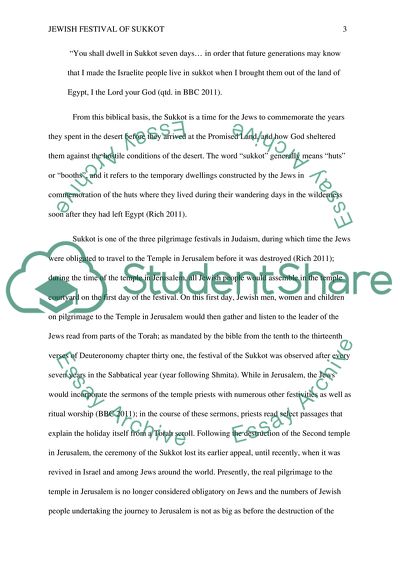Cite this document
(Jewish Festival of Sukkot Essay Example | Topics and Well Written Essays - 1250 words, n.d.)
Jewish Festival of Sukkot Essay Example | Topics and Well Written Essays - 1250 words. https://studentshare.org/religion-and-theology/1841558-su
Jewish Festival of Sukkot Essay Example | Topics and Well Written Essays - 1250 words. https://studentshare.org/religion-and-theology/1841558-su
(Jewish Festival of Sukkot Essay Example | Topics and Well Written Essays - 1250 Words)
Jewish Festival of Sukkot Essay Example | Topics and Well Written Essays - 1250 Words. https://studentshare.org/religion-and-theology/1841558-su.
Jewish Festival of Sukkot Essay Example | Topics and Well Written Essays - 1250 Words. https://studentshare.org/religion-and-theology/1841558-su.
“Jewish Festival of Sukkot Essay Example | Topics and Well Written Essays - 1250 Words”. https://studentshare.org/religion-and-theology/1841558-su.


